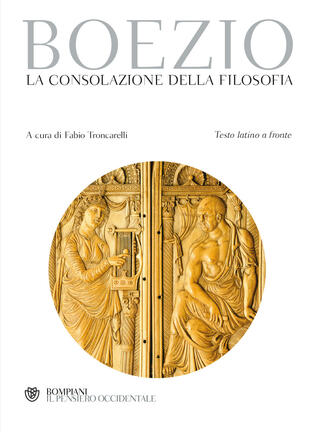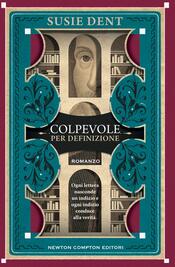

Sinossi
"La Consolazione della filosofia" è un'opera in prosa e in versi composta dal filosofo Severino Boezio durante la prigionia, fra il 523 e il 525. La Filosofia appare all'autore e lo invita a riflettere sulla vera felicità, senza farsi ingannare dai rovesci della fortuna. L'opera è una sintesi di temi della filosofia antica, riprende Platone e Aristotele, ma anche il pensiero degli Stoici e i Neoplatonici, e li armonizza con la riflessione di Agostino e con suggestivi richiami biblici. La Filosofia dimostra che gli uomini cattivi sono in realtà dei perdenti rispetto a chi segue la virtù: il male è assenza di bene e non-essere, e il saggio si assimila alla divinità, partecipando alla natura del Bene. L'eternità divina è «possesso perfetto e del tutto simultaneo di una vita senza fine», in cui tutti gli eventi contingenti, previsti in un'unica «visione», non sono predeterminati da Dio. Quest'affascinante riflessione di un condannato a morte, capace di trascendere il contingente e di tenere fisso lo sguardo sull'Eterno, avrà un grande successo nel Medioevo e influenzerà profondamente Dante. Il presente volume propone una nuova traduzione condotta sull'edizione critica del 2005.
- ISBN:
- Casa Editrice:
- Pagine: 576
- Data di uscita: 30-10-2019
Recensioni
You ever wonder why God (or the universe) would allow a truly awful human being like Donald Trump to flourish? I do and this book delves into that kind of question with gusto. The author, Boethius, through his dialog with the lady, Philosophy, tells us and much more. There is no cop out with his ans Leggi tutto
A Rare And Varied Consolation Boethius's "The Consolation of Philosophy" is a rare and unusual philosophical work in that it continues to be read by many people who are not philosophers or students of philosophy. This is witnessed by the many thoughtful reader review the book has received here and el Leggi tutto
Why does a good God allow bad things to happen to good people? And why does He allow bad people to get away with doing bad things? In 524, Anicius Manlius Severinus Boethius was executed, most likely by strangulation, on a charge of treason. Whilst languishing in prison, he wrote a book that was to b Leggi tutto
525 senesinde öldüğü düşünülen bir adamı okumak istememdeki nedenler şöyleydi: 1- Felsefenin kadın olarak zuhur etmesi (güzel imge) 2- Yazar, haksızlığa uğratılıp idama mahkum edildiğinden gider ayak sağlam bir şeyler keşfetmiş olabilirdi. 3- "Kader / özgür irade problemi" takıntılı bir insan olarak h Leggi tutto
“He would have been remarkably in any age; in the age in which he lived, he is utterly amazing.” —Betrand Russell on Boethius. First of all, this is a beautiful book. Boethius—himself in a horrible situation—strives to use the extent of his philosophic powers to condole others who are suffering, and Leggi tutto
Boethius was in prison on death-row while writing this book, or at least the 524 AD equivalent of what we today refer to as death-row. As such perhaps it is an appropriate book for persons in quarantine due to COVID-19 to be reading. ;-) Boethius was writing in Latin, but he was using the reasoning
Perhaps more amazing than the content of this book are the circumstances of it's creation. Sitting in prison for what seems like simply pissing off the wrong people, Boethius began talking to himself. Being unable to fathom why this horrible turn of events has happened to him, unable to come to term Leggi tutto
Citazioni
Al momento non ci sono citazioni, inserisci tu la prima!























